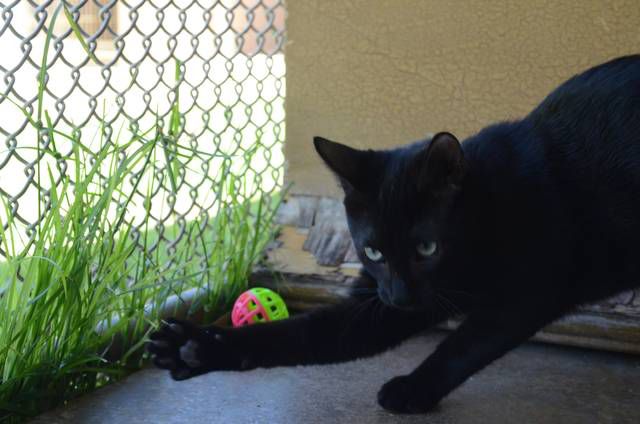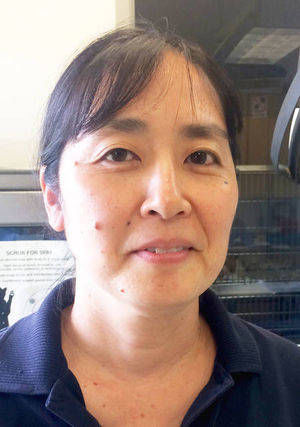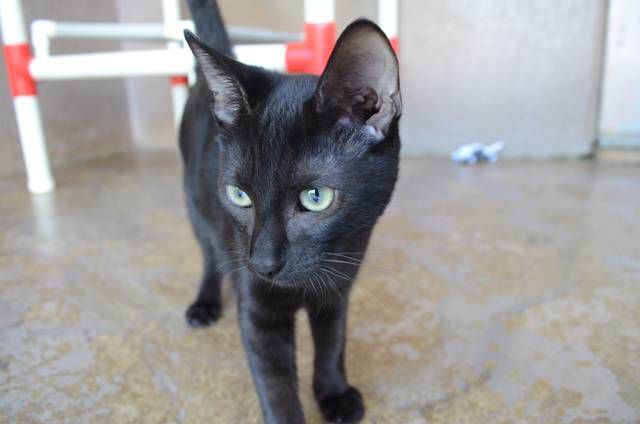PUHI — The Kauai Humane Society sterilization clinic is getting closer to opening, though no date has officially been set for surgeries to resume. “We’ve completed the process of self-evaluation and looking at our procedures and processes in our clinic,
PUHI — The Kauai Humane Society sterilization clinic is getting closer to opening, though no date has officially been set for surgeries to resume.
“We’ve completed the process of self-evaluation and looking at our procedures and processes in our clinic, and we’re implementing positive changes and improvements,” said KHS Executive Director Scott Pisani at the entity’s annual membership meeting June 22.
The greatest challenge to opening the doors is finding veterinarian technicians and customer-service people to bolster the staff.
“We found folks weren’t getting as high a quality of customer service as we want, having the clinic running right next to all the other things we’re doing,” Pisani said.
When the clinic reopens, a higher level of customer service will be apparent because there will be enough people to keep all the gears moving in the shelter and the clinic.
KHS doesn’t quite have enough veterinarian technicians to meet standards for best practices in the industry, either.
“We have open positions and we’ve had them open for months now,” Pisani said. “We’re actively trying new and interesting ways to attract people into these positions.”
The spay and neuter program was halted in April following the deaths of two patients in March. Both patients were feral cats that had been dropped off by caretakers for sterilization. Both died after the sterilization procedure was done.
In April, Dr. Dawn Ushio, KHS staff veterinarian, said deaths in the spay and neuter program are “rare, but it does happen once in a while.”
The first patient KHS lost was a female cat that died a few days after surgery in early March. Staff members at KHS theorize the cat had liver problems that complicated the surgery. The caretaker reported the death to KHS.
The second patient was a male cat that died while recovering from anesthesia at the KHS faculty. Staff members don’t have as clear of a picture about what happened with that cat.
Since Pisani was already reviewing KHS’s medical department, after the second death he took the opportunity to evaluate the spay and neuter program, shutting down the clinic April 3.
“We understand that’s made it a challenge for folks who are passionate about ensuring homes for pets,” Pisani said. “The way we do that is through sterilization, and the timing is particularly difficult because of cat season (summer when more cats have kittens).”
While KHS is working to get up to speed on sterilizations at their own clinic, the entity is taking it a step further by bringing in a Mobile Animal Sterilization Hospital (MASH) clinic to Kauai in September.
“They have the capacity to do up to 1,000 surgeries and there will be no charge for anyone in the public,” Pisani said. “They’ll take all customers, all traps.”
Over the summer, KHS will be investing in more traps to ensure enough animals will be taken to the MASH clinics, which are to be run by the animal population management group Animal Balance.
The organization only brings MASH clinics to islands, and the first was started in 2004 on Galapagos Island. The clinics have spread from there to places like Cuba, Maui and the Big Island.
After 15 MASH clinics on Maui, Pisani said they were able to make significant inroads into the problem and find the funding to do a permanent spay and neuter facility, one that’s currently in operation.
It’s a model that KHS would like to follow, and the first step, Pisani said, is the MASH clinic.
“The key for this is to significantly increase the amount of free or very affordable sterilization surgeries on our island far beyond what they’ve been in the past,” Pisani said.




